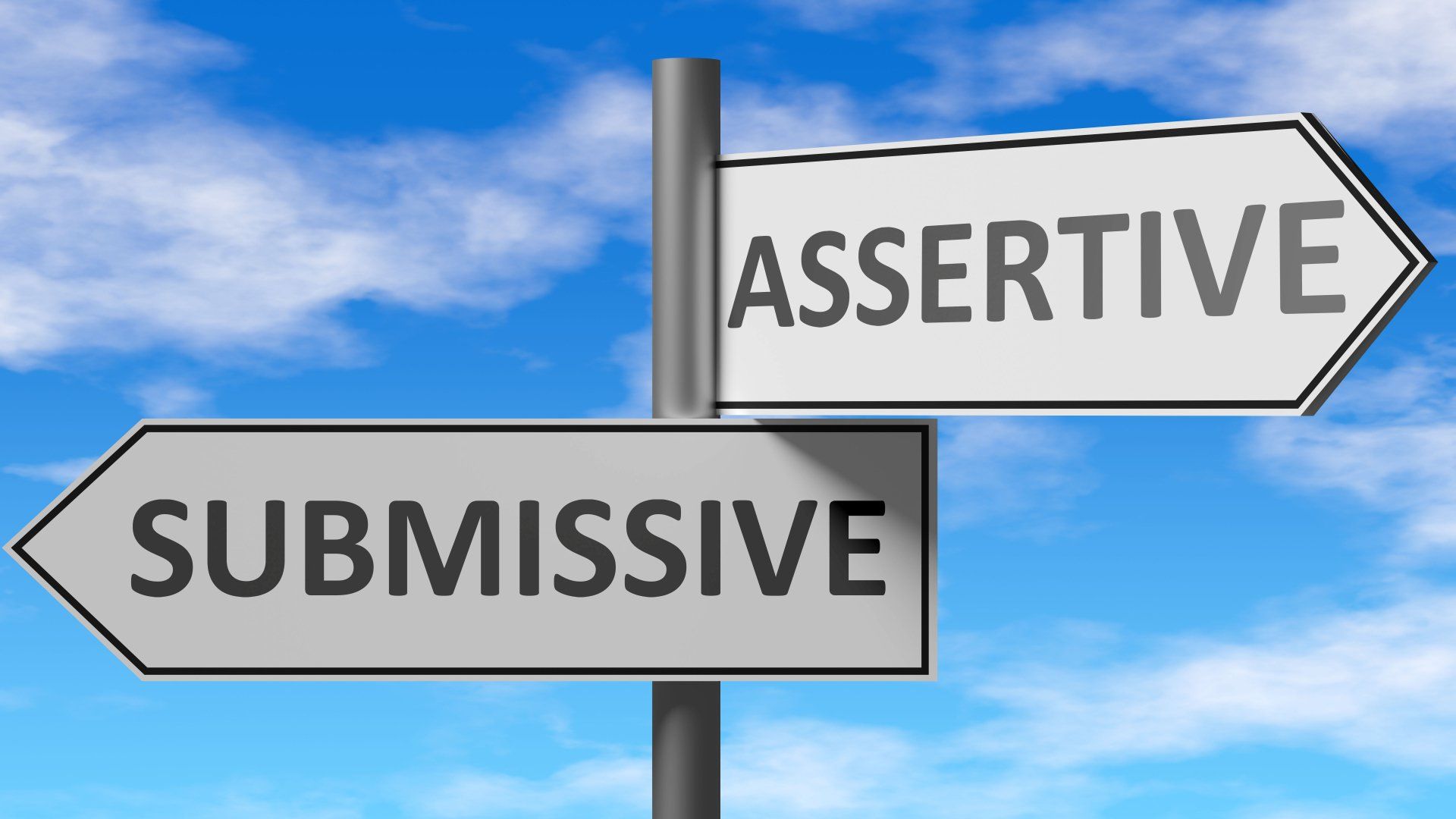


If you're like most people, you probably shy away from conflict. You might not want to stand up for yourself or speak your mind for fear of angering someone or stirring up drama. But what if there was a way to be more assertive without being aggressive? In this blog post, we'll discuss some tips on how to be more assertive in your everyday life. So please read on!
Assertiveness is a crucial skill for navigating a wide range of situations and relationships. At its most basic level, assertiveness means standing up for yourself, communicating your needs and desires, and respectfully advocating for yourself. However, it is important to remember that in order to be truly assertive, one must not be aggressive or passive. Aggressive behavior can lead others to feel like you are trying to dominate or overpower them, while passive behavior may make others discount your opinions or convictions as insignificant or unimportant. Instead, true assertiveness entails being both kind and firm. By striking the right balance between kindness and firmness, you can effectively communicate your needs and advocate for yourself without making those around you uncomfortable or undermining their own needs or desires. Whether negotiating with a friend or coworker, asking your boss for a raise, or resolving a conflict with an acquaintance, being assertive will ensure that your voice is heard and taken seriously.
There are a number of reasons why you might not be assertive. Maybe you're afraid of conflict or you don't want to rock the boat. Or maybe you're just not used to speaking up for yourself. Whatever the reason, not being assertive can hold you back in life. It can prevent you from getting what you want and stop you from standing up for yourself when you need to. If you're not being assertive, it's important to identify the reasons why. Once you know what's holding you back, you can start to work on being more assertive. Only then will you be able to reach your full potential.
It can be difficult to say no, especially when you feel like you're being polite or helpful. However, there are times when it's necessary to decline an invitation or put your foot down. By learning to say no, you can take control of your time and your life. When you say yes to something, you're saying no to something else. So if you don't want to go to a party or meet a friend for coffee, it's okay to say no. You don't owe anyone an explanation or an excuse. Just a simple "no, thank you" will do. Of course, there will be times when you can't or don't want to say no. In those cases, just be honest and clear about your boundaries. Let the other person know what you're comfortable with and what you're not. By being assertive, you can take back control of your life and start living on your own terms.
Finding your personal assertiveness style is a highly individual process. Some people may find that they respond best to a more aggressive approach, taking a strong, firm stance and demanding respect from others. Others may be more inclined to adopt a passively aggressive style, subtly hinting at their disapproval while not explicitly making their desires known. Still others may be more inclined towards collaboration and cooperation, using the input of others in order to achieve the desired outcome. Ultimately, there is no right or wrong way to be assertive, as long as your approach is respectful and intentional. And all of these approaches can be honed and cultivated through practice and gentle exploration of your own strengths and weaknesses. So whether you tend towards aggression or passivity, collaboration or confrontation, find your personal assertiveness style by listening to how you respond naturally in various situations and then tailoring your approach accordingly. In the end, you will be able to communicate confidently and effectively with the world around you.
Anger and criticism are two uncomfortable emotions that are all too common in the modern world. Whether it's an argument with a coworker, a disagreement with a family member, or even just an unpleasant interaction with a stranger on the street, we often find ourselves having to deal with difficult emotions and challenging situations. But there are ways to respond effectively to these experiences.
Dealing with feelings of guilt or self-doubt is often a necessary part of being assertive. In order to stand up for yourself, or express your opinions and needs clearly, you often have to push past fear and uncertainty in order to be heard. This can be challenging, especially if you struggle with feelings of guilt or self-doubt. However, there are several strategies that can help you deal with these negative emotions and cultivate the confidence needed to be assertive.
For example, one technique that can be effective is to minimize the importance of your feelings of guilt or self-doubt. Although these emotions may feel overwhelming at first, it's important to recognize that they are ultimately just temporary mental states brought on by external circumstances. By giving yourself some space and time to process these feelings without getting caught up in them, you can prevent them from interfering too much with your ability to take action. Additionally, focusing on positive affirmations and working through fears slowly and systematically can also help you gain greater clarity and confidence when being assertive. With the right mindset and techniques in place, then, it is possible to effectively manage feelings of guilt or self-doubt when being assertive.
While being assertive is important, it can be difficult to put into practice. Don’t worry if you find this challenging – we all have trouble with asserting ourselves at times. If you want to learn how to become more assertive, we recommend our Boundary Setting program. This online course will help you understand your personal boundaries and how to enforce them in a healthy way. With the skills you learn in this program, you’ll be able to confidently express yourself and set boundaries that work for both you and your relationships.
GET STARTED TODAY
SAVE 75% OFF OUR BOUNDARY SETTING PROGRAM! CLICK BELOW
https://kpcselfdefense.teachable.com/p/realities-of-boundary-setting?coupon_code=FLASHSALE
Randy


ALL RIGHTS RESERVED | RANDY KING LIVE